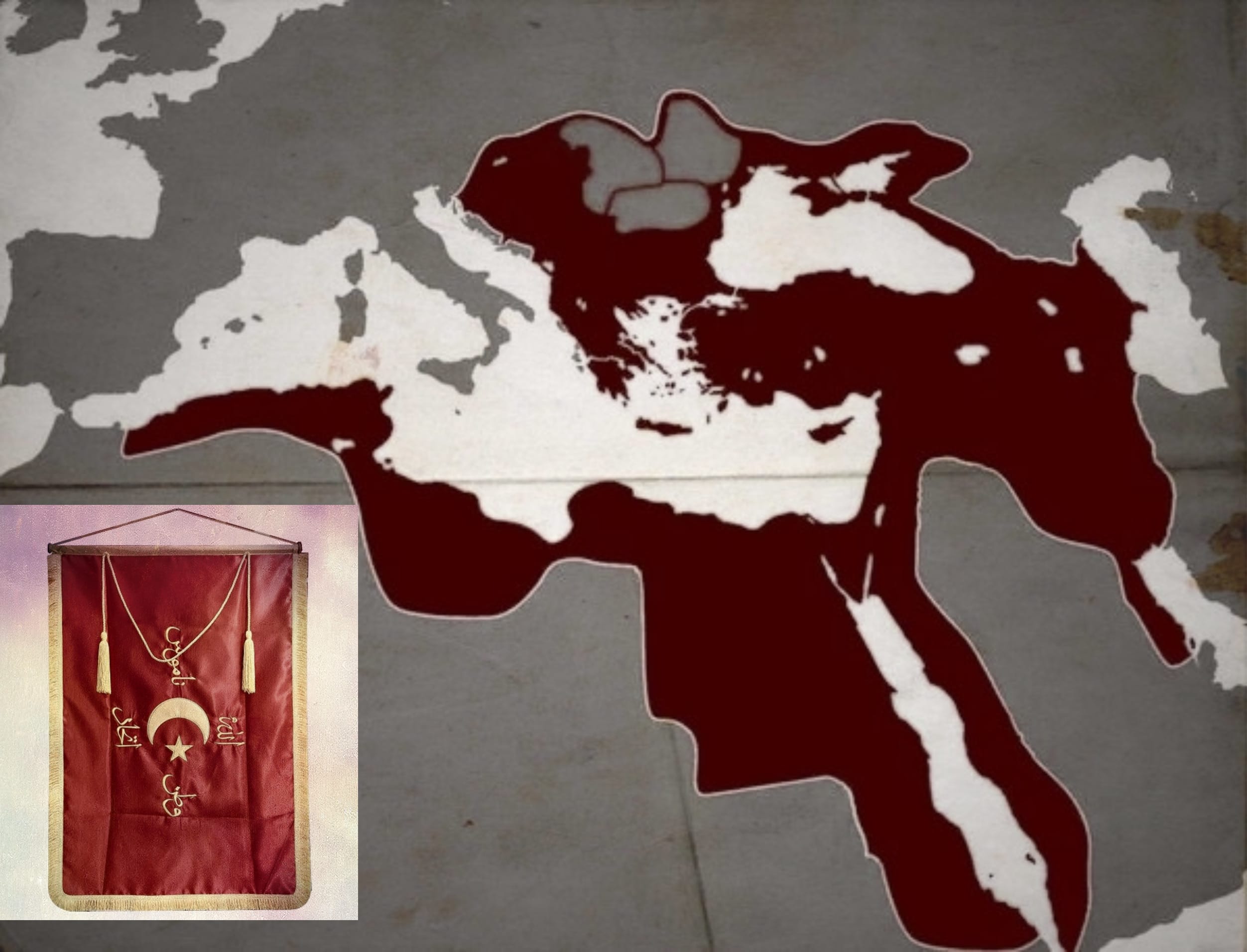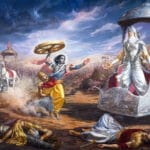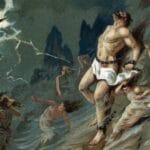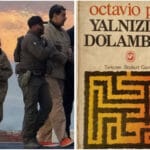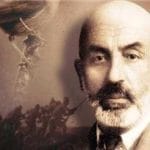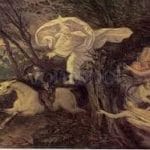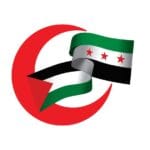“Sezai Karakoç is undoubtedly not only a great poet but also a profound thinker and man of action; he is an Islamic political thinker. His foundational political view is rooted in the reality that all Muslims across the globe constitute a single nation (the Islamic Ummah), and all Islamic lands represent a single country (the Islamic Nation). This perspective forms the cornerstone and starting point of Karakoç’s political ideology.”
In a series of articles he wrote in 1974, Sezai Karakoç revisited this subject. In his piece titled “The Ideal of Unity” (“Birlik İdeali”), he declared: “Those who consider the ideal of Islamic Unity (İslam Birliği) as a dream, a utopia, are deceiving themselves. Both the eyes see and the heart feels that uniting and coming together has now become the sole condition for the survival of the Islamic World (İslam Âlemi). Woe to those who fail to see this truth!” (S. Karakoç, Sûr, p. 92).
In the same article, Karakoç pointed out the contradiction that while European states—having never truly united throughout history and, in fact, engaging in brutal and destructive wars among themselves—have sought artificial foundations to achieve “unity,” Muslims, who lived under a single state banner until just fifty years ago, now regard the notion of unity as an unrealistic dream. Drawing attention to this contradiction, Karakoç asserts: “Before Europe completes its unity, Muslims must complete theirs if they are to survive.”
In his book Sûr, first published in 1975, Sezai Karakoç proposed in the chapter titled “From Fragments to Wholeness” (“Parçadan Bütüne”), which precedes this essay, the establishment of “regional federations” among Islamic countries as a prerequisite for achieving “unity.” He stated:
“Islamic nations are compelled to come together by uniting their forces—both material and spiritual—and thereby defend against aggression. Otherwise, in the current state, enemies will seek ways to eliminate them one by one…
For instance, a North African Islamic Federation comprising Egypt, Libya, Tunisia, Morocco, and Algeria; a West African Islamic Federation including Nigeria and neighboring Muslim countries; a Dicle-Fırat Islamic Federation (Tigris-Euphrates Islamic Federation) made up of Türkiye, Syria, and Iraq; and a South Asian Islamic Federation, including the Philippines, Indonesia, Malaysia, Pakistan, and Afghanistan, have become an unavoidable necessity for collective defense.” (S. Karakoç, Sûr, pp. 90–91)
(Şaban Abak, The Dicle-Fırat Islamic Federation or the Brotherhood of Türkiye-Syria-Iraq and Sezai Karakoç, Müşterek Journal–2021)
The late Sezai Karakoç wrote these lines in the 1970s, a time when no one dared to question the borders drawn by the Sykes-Picot Agreement. In the 1838 Tanzimat Edict, the term “infidel” (gavur) was officially banned from being used derogatorily. In 1924, under the Treaty of Lausanne, it became forbidden to call this country “Ottoman.” By the 1930s, even words like Islam, Arab, Muslim Turk, Kurd, and Alevi were prohibited.
From the 1960s onward, Karakoç, with a modest, calm, yet resolute demeanor, persistently advocated for Islamic unity, the Islamic cause, and the revival of Islam, fearlessly defying all these bans. He spoke his truth without regard for anyone’s approval or opposition, establishing himself as a courageous intellectual of his time.
Not only his writings but also his poetry reflected this unwavering faith and consistent direction as a believer, a path he never strayed from until his passing.
When the Syrian uprising began in 2011, Sezai Karakoç, with his characteristic caution and concern, viewed it with unease, fearing that they would once again divide us, incite wars, or launch invasions. He was aware of how Western powers had dismantled the Ottoman Empire, divided Muslim communities, and managed the artificial states they established. Thus, he interpreted every development within the same framework.
Karakoç’s concern was justified, but his interpretation was mistaken. This was because those who rose up in Syria were resisting the oppressive regime’s massacres of civilians, and it was not the Western powers supporting the rebels but rather the regime itself.
Ironically, a dramatic contradiction emerged in the context of the Syrian revolution concerning Sezai Karakoç, who published a magazine in Turkish named Diriliş (Resurrection), which coincidentally shared its name with the Ba’ath (Diriliş) parties in power in Syria and Iraq. This was a paradox of manifestation—a strange tension arising when signs appeared that the cause, project, or goal that had been defended, longed for, and passionately believed in throughout a lifetime might actually come to fruition.
It was peculiar turmoil, as many writers, intellectuals, and opinion leaders—who almost habitually began every article, speech, or statement by criticizing the West and imperialism while emphasizing that the West wasn’t as powerful as it seemed and that our weakness was the real issue—refrained from extending the same boundless credit they gave to the Iranian Revolution to the Arab Spring, particularly the Syrian revolution.
Instead, they muddled the natural, simple, and straightforward uprising of the Syrian people and the undeniable cruelty of the Alawite Ba’ath regime by cloaking it in confusion, filled with demagogic narratives about the U.S., Israel, plots, conspiracies, and traps, attempting to legitimize their disarray.
For some, the primary cause of this hypocritical stance—where they could not even call the oppressor an oppressor or the oppressed the oppressed—lay in their sustenance from the fields cultivated by the devilish Iranian mullah monarchy, which had devoured even its own revolution.
Even the Sednaya prison alone has etched into history the depths of complicity and the satanic delusions of these hypocrites, who justified and concealed not only Syria’s regime but also one of the most despicable, organized, and oppressive regimes humanity has ever witnessed.
Yes, as the poet says, “Betrayal finds a magnificent excuse in the night,” but in the case of Syria, no excuse, no justification will ever be accepted for these traitors. They will be condemned to the trash heap of history, alongside Iran, Assad, and all other Rafidites.
However, what existed in the case of Sezai Karakoç and others like him was a deeper, more dramatic issue: a profound lack of confidence and timidity that had permeated organic intellectuals since the collapse of the Ottoman Empire and the establishment of a self-colonization system against the nation after the “theft” of the new Türkiye, which the people had won through their War of Independence.
A personality that is bold in rhetoric but cowardly in practice, free when dreaming but timid in living—a deeply internalized sense of inadequacy. A peculiar schizophrenia that never trusts itself or those like it, yet preaches for a lifetime to “be yourself.” A mindset that does not believe in people, human action, the public, or the nation—does not trust that the nation, through its free will, can accomplish, achieve, or create something good and right.
Yet it constantly speaks of faith in God and the eventual triumph of believers. Even while proclaiming the absolute sovereignty of God, it paradoxically elevates the imperialists, Westerners, foreign powers, Zionists, Freemasons, converts, and countless other “devils” to the status of invincible forces with unshakable, perfect plans, projects, schemes, and traps.
This is a strange kind of faith, one that almost equates the devil with God through a sort of Zoroastrian theology. A profound, very profound paradox indeed.
If the late Karakoç were alive today, how would he respond to the steps toward the realization of the Dicle-Fırat Federation (Tigris-Euphrates Federation) —essentially the Türkiye-Syria-Iraq unity—progressing under the leadership of cadres nurtured directly by his own books and poetry, guided by an organic, local, and national will? I cannot say for sure.
Would he, this time, channel his poetic curiosity not with fear and anxiety but with hope and faith, embracing a more positive excitement?
I am certain that Karakoç would never stoop to the level of labeling the act of a people—millions—who, after enduring countless pains, torture, exile, massacres, humiliation, neglect, accusations, and exclusion, managed to carry out a graceful, peaceful revolution, expel their oppressors, and return to rebuild their homes and nations, as an “American-Israeli conspiracy.” Such a claim would reflect servitude to America and Israel, or, in a similar vein, to Persian interests, which Karakoç was far from embodying.
Karakoç, at the very least, believed in God and the Islamic Ummah. Preserving his sincere and genuine concerns while striving to overcome the lack of confidence that plagued his generation is a responsibility we must shoulder.
It is now time to reclaim and renew the true wisdom we have lost: the confidence, the monotheistic faith in civilization, the genuine awareness of homeland and nation, the goal of Memalik-i Müttehide (United Domains), the Misak-ı Milli (National Pact), the Kuvayı Milliye (National Forces), the defense of rights, the capital of Darüsselam (Abode of Peace), and the comprehension of the Devlet-i Aliye (Sublime State).
This is the time to establish justice, freedom, and security within a democratic order that represents the average of the nation—without distinctions of Muslim or non-Muslim, Alevi or Sunni, secular or devout, Turk, Kurd, or Arab, rightist or leftist. It is time, for the first time in a century, to discuss and debate political, social, economic, and geopolitical plans, projects, strategies, and goals using our own intellect, strength, and resources.
The Dicle-Fırat Federation, the El Jazira Confederation, the Türkiye-Syria-Iraq Union, the United States of the Middle East, Afro-Eurasian geopolitics, the Mesopotamian-Mediterranean Civilization, the Democratic Middle Eastern Confederation, the revival of the Ottoman Empire, the Muslim Rome, Greater Türkiye, the Turan Confederation… Let everyone express these ideas in the words that suit their perspective.
If words will solve that profound problem—if they will erase the divisive borders and seeds of discord planted by the occupiers, destroy the identity-based, ethnic, sectarian version of the Treaty of Sèvres, and isolate the mistrust that fragments our sense of “us” to inspire a genuine revival—then all these words are acceptable, valid, and legitimate.
What matters is the perspective and actions of those who view the world from Ankara, Istanbul, Anatolia, Damascus, Erbil, Baghdad, Jerusalem, Cairo, Bosnia, and Skopje—rather than those who look at it from Washington, Europe, Tehran, Moscow, Beijing, Tel Aviv, or Riyadh.
Everything else is merely the whispers of devils.
“Let us begin with roses, following the ancestors,
Let us enter the land of words, inhaling the spring.
…A rusty iron door creaks open,
As mold-covered locks groan.
From the depths of darkness, suddenly,
You rise like a song.
I whisper to you the fiery words
That have smoldered inside me for years,
My subconscious explodes like a bomb, scattering
The dust and ash of time, the graying of your hair.
What do I care for Paris,
New York, London,
Moscow, or Beijing?
With you beside me,
Why should I concern myself
With all these fabricated civilizations?
You became a civilization for me,
Through every night and day of my life.
Your eyes, a window to the Tulip Era;
Your hands, from Baki, Nef’i, and Şeyh Galib,
Golden lilacs spilling into my arms.”
(S. Karakoç, From the Exiled Land to the Capital of Capitals)
The reconquest of Bilad al-Sham is akin to the conquests of Salah al-Din and Yavuz, and every honorable person must do their part to ensure that its aftermath reflects the same.
The hour of our destiny, though weary, will soon return brimming with the joy of all joys. This is our faith and our hope.
In the end, every person is as much as their faith and hope.
“I know Damascus from a thousand years ago,
As close to me as my mother’s milk.
The blood of its last defenders had risen
To the very marrow of their horses’ legs.
The green banner of the Prophet they carried
Billowed in torrents above their heads.
When the horn of rebirth and resurrection is sounded,
The city to which I will return is Damascus.
Soldiers will return as if to a capital,
Perhaps weary, but with the greatest of joys.
When the Euphrates comes to you,
How will you welcome it?
When the Tigris comes to you—
A beginning of revival, an end of reckoning—
How will you welcome it?
The blood that wrote God’s name across the face of the earth
Had risen to the marrow of their horses’ legs.
A blood that had surged fiercely
From the rivers of Ilgaz, Erciyes, Ağrı,
And Süphan Mountains.
And then, alas, autumn—the great defeat—
Arrived for the Great Nation and Great Homeland,
Bringing a raven with black, black wings,
Spreading mourning over Istanbul, Baghdad, and Damascus.
But there is no despair; on the nearest and sharpest day,
Fortune will return, and the Great Horseman will come,
A savior for the Muslim people submerged in suffering.
And tradition says he will first appear in Damascus,
When the appointed hour arrives.”
(Sezai Karakoç, The Hour of Destiny)
